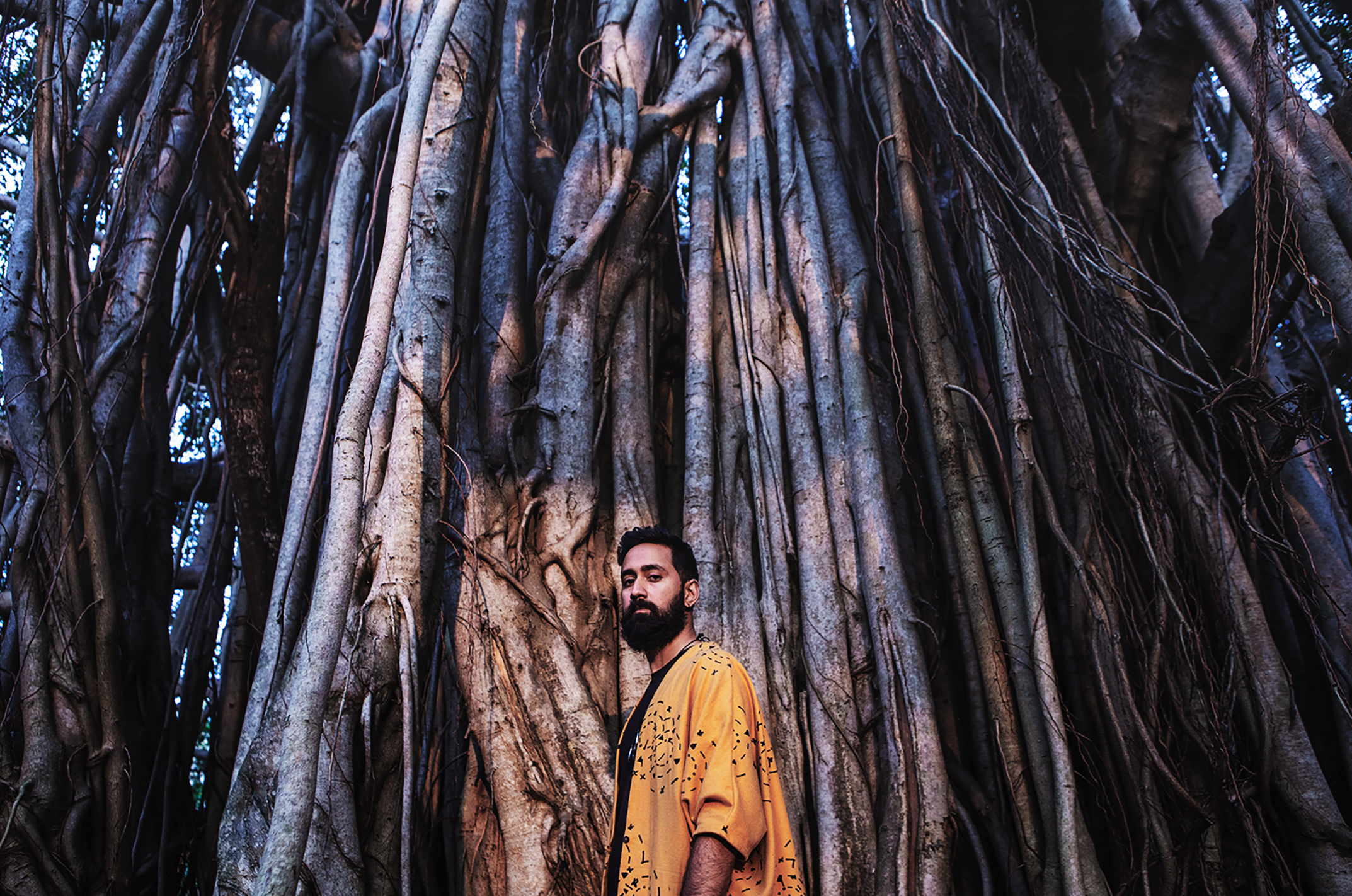Sarathy Korwar is an artist on the rise. With wide acclaim, he has won Songlines Award for best album (Asia/Pacific) in 2023, and came second in The Guardian’s top Global Albums of 2022.
Strictly speaking, his music is Jazz – drum beat instrumental that’s often improvised. Trance is another influence, “anything that takes you out of your own body and makes you think of something larger than yourself. Musically, it’s about locking into particular rhythms and letting them take over.” He tells me this when I get the chance to chat with him a few months back.
“Everyone’s first experience of music is improvisation; that childlike innocence.”
It’s important to recapture that as an adult, he says, “that playful sense of risk taking, pushing out of your comfort zone.”
Sarathy is no stranger to being out of his comfort zone. Born in the US, raised in India, and now living in London, he has moved around a lot.
“Being flexible and making new friends, and being open to things changing have always been things I have had to get used to.”
Sounds difficult, but, he tells me, there were many benefits.
“You get exposed to so many different cultures. In my house, my parents were (and still are) Indian classical music junkies, and both can sing, so I grew up with a lot of that. In school, my friends and I were into 60s and 70s rock and roll – from the Doors and the Beatles, to Jimi Hendrix. Those influences led us to discovering Jazz and the Blues, and then moving to London to find this other contemporary Jazz scene and sound-system culture, Dub, Jungle, and Drum and Bass.”
He sums up his music: “I am into both Jazz trios and DJs, so it’s like, how do I find a way to make those two worlds collide?”
Collision is a good word to describe Sarathy’s sound, “I try to bring in sample pads and electronic kicks – the sound is very much electro-acoustic.”
With that collision, there is a degree of tension too, of worlds colliding. Sarathy leans into this, bringing provocative ideas into his songs.
In his album, KALAK, his song Utopia is a Colonial Project is a captivating piece with unnerving undertones. The title is meant to raise alarm bells.
“I went back and read Thomas More’s Utopia, and the more you read critiques of it and the book itself, you see it’s just a blueprint for settler colonialism. At the time it was written, European conquest was at its peak – all these explorers finding the new world. But utopias themselves can be very dehumanising – you go treating the people and the land as a resource, rather than going and trying to understand the culture.”
The music video involves a man dancing by himself in the streetlights of a London neighbourhood. Sarathy tells me this was what this was about: “going into a migrant heavy neighbourhood – North African, Jamaican, Afro-Caribbean – people in Ridley Road Market, where you suddenly get massive developments, and fancy flats being built. In a way it’s modern day settler colonialism, that’s how I see it.
“A lot of my work talks about things that make people uncomfortable.”
When he speaks about utopias, colonialism, and gentrification, he means to provoke questions and conversation.
“People aren’t stupid when they talk about connecting to their ancestors and talking to their descendents. These ideas of legacy and generational trauma have existed in a lot of cultures for a long time, just with different words to ones we’re familiar with.”
He talks to me about KALAK and his more recent album, KAL (Real World), which both centre on the Hindi word kal.
“The word kal means yesterday and tomorrow – it’s the same word for both days. You could say, when are you going to do that thing, and someone could reply “kal”. I guess what I’m trying to say is that a lot of language hints at ideas within cultures about how they view time; language is a good marker of the things people hold of value in their culture.
The inherent paradox of that word and the fact that people are ok with it…makes me think some cultures are more comfortable with ideas of paradox and with not knowing, and not having definite answers. I think we live in that age of knowing things for a fact, and being able to google everything and just knowing the answer to every particular problem. Of course, the deep irony is that none of us really know anything.”
“…we probably wouldn’t be in a climate crisis if we recognised that past, present and future work potentially more as a circle.”
The album title of KALAK plays with this – a palindrome (reads the same, whether you read it front or back). “It breaks up that idea of linearity – that everything has to be read a certain way, and with it, the deeper meaning that time doesn’t have to function in a set linear way.”
“I think the way we have all been educated and how modern day systems of work, efficiency and capitalism works is short-termism, and linear cause-effect methodology, but if we look deeper we probably wouldn’t be in a climate crisis if we recognised that past, present and future work potentially more as a circle.
“I don’t write about relationships, love, and breakups, but I talk about them in a sense of community, or a loss of identity.”
Refreshing. It’s no surprise though – if I learned anything from chatting with Sarathy, it’s that he has no intention of treading familiar ground – just take a listen to his music and tell me otherwise.
Sarathy’s music is available in a wide variety of formats. Visit his website here to find out more.
